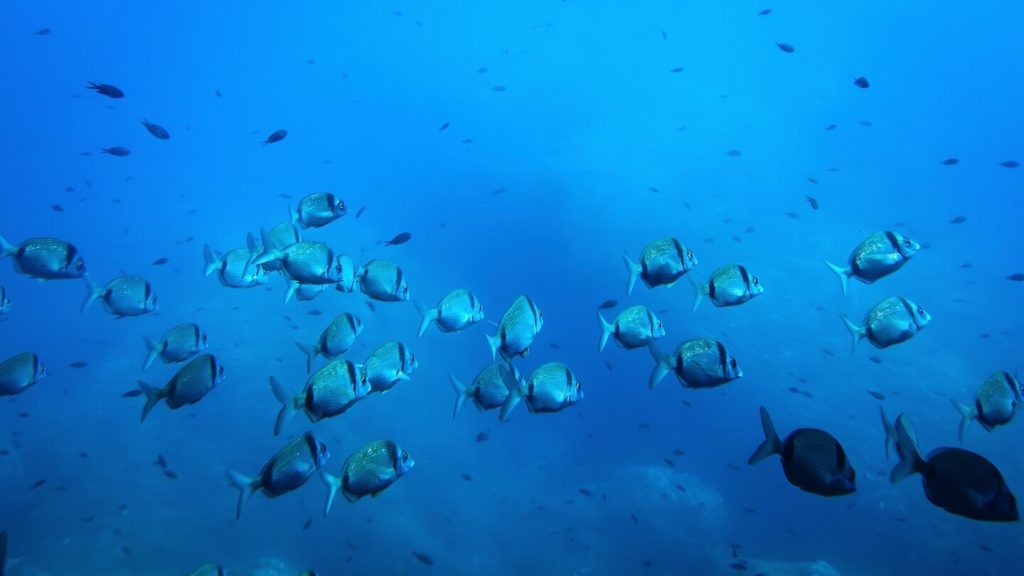Listen to the article
Deep-sea mining operations could severely impact marine food chains and potentially harm commercial fisheries, according to a new study published Thursday in Nature Communications by researchers from the University of Hawaii.
The research focused on the ocean’s “twilight zone,” located approximately 650-5,000 feet below sea level, and examined how mining waste affects the delicate ecosystem that supports global fish populations. Scientists analyzed water and waste collected during a 2022 deep-sea mining trial to understand potential environmental consequences.
When mining companies extract mineral-rich nodules from the ocean floor, they release excess seawater, dirt, and sediment back into the ocean. This creates murky plumes of particles similar in size to the natural food consumed by zooplankton in these waters. These tiny organisms form a critical foundation of the marine food web.
“If these organisms at depth are no longer present because their food web has collapsed, then that can impact higher food webs and more commercial interests,” explained Michael Dowd, the study’s lead author and oceanography graduate student. The research suggests that mining waste essentially functions as “junk food” for these organisms, potentially leading to undernourishment that would ripple up the food chain.
The consequences could eventually affect commercially important fish species such as mahi-mahi and tuna, which dive deep into ocean waters to feed on these smaller organisms. While a single mining operation might have limited impact, researchers warn that multiple companies operating across large areas could significantly disrupt marine ecosystems.
Unlike previous studies that primarily examined seafloor impacts, this research specifically addresses mid-water consequences of deep-sea mining. The findings highlight the need for more comprehensive assessments of appropriate depths and methods for returning waste water and sediment to the ocean. The researchers noted that alternative disposal methods, including returning waste to the ocean floor or other depths, could be equally disruptive but in different ways.
Brian Popp, senior study author, suggested exploring alternative sources of the minerals sought through deep-sea mining. These could include recycling batteries and electronics or processing existing mining waste and tailings, potentially eliminating the need to disturb deep-sea environments.
Despite environmental concerns, the momentum behind deep-sea mining continues to build. The International Seabed Authority has already granted several exploration contracts for areas beyond national jurisdictions. In the United States, the Trump administration has taken steps to expedite deep-sea mining operations. In April, President Trump signed an executive order directing the National Oceanic and Atmospheric Administration (NOAA) to streamline permitting processes for ocean floor mining companies, and in May, the administration indicated it would consider selling leases for mineral extraction near American Samoa. Last month, NOAA submitted a draft rule to the White House aimed at facilitating these operations.
The push for deep-sea mining is largely driven by increasing demand for critical minerals used in electric vehicles, renewable energy technologies, and military applications. Nations are particularly eager to secure supplies independent from China, which currently controls access to many critical minerals.
Environmental organizations have consistently opposed deep-sea mining, citing not only direct harm to marine wildlife and habitats but also the potential release of carbon dioxide currently sequestered in ocean sediments, which could exacerbate climate change.
Sheryl Murdock, a deep-sea researcher at Arizona State University not involved in the study, questioned whether mineral extraction justifies potentially disrupting ocean functions. Similarly, Diva Amon, a marine biologist at the University of California, Santa Barbara, warned that mining impacts could lead to “species illness, species movement, species death” and potentially even extinctions.
“There’s a lot more research that needs to be done to be able to make an informed decision about how to manage this industry, if it does start, in a way that will prevent, essentially, serious harm to the ocean and ocean ecosystem,” Amon concluded.
Fact Checker
Verify the accuracy of this article using The Disinformation Commission analysis and real-time sources.




12 Comments
The impact of mining waste on zooplankton, the foundation of the marine food web, is particularly concerning. This study emphasizes the importance of understanding the full implications before pursuing deep-sea mining.
Absolutely, the cascading effects on higher trophic levels and commercial fisheries could be far-reaching and devastating if not properly addressed.
This research highlights the delicate balance of the deep-sea ecosystem and the need to carefully weigh the benefits of deep-sea mining against the potential ecological consequences.
Agreed, a precautionary approach is warranted to ensure we don’t irreparably damage these fragile marine environments for short-term economic gains.
While the potential economic benefits of deep-sea mining are clear, this study serves as a sobering reminder of the need to prioritize environmental protection and sustainable resource extraction.
Agreed, a balanced approach that weighs both economic and ecological considerations is crucial to ensure the long-term health of our oceans.
The potential disruption to the marine food chain from mining waste is a serious concern. Maintaining the integrity of these deep-sea ecosystems is essential for the long-term sustainability of our oceans.
Absolutely, the study underscores the need for robust environmental impact assessments and stringent regulations to mitigate the risks of deep-sea mining.
This research underscores the complexity of deep-sea ecosystems and the potential for unintended consequences from human activity. Careful scientific study and stakeholder engagement will be key to responsible deep-sea mining.
Absolutely, a precautionary, evidence-based approach is essential to safeguard these fragile environments and the communities that depend on them.
Interesting study highlighting the potential risks of deep-sea mining on the marine ecosystem. Protecting the delicate ‘twilight zone’ food web seems crucial to safeguard fisheries and the broader ocean health.
I agree, this is a concerning issue that deserves careful consideration before rushing ahead with deep-sea mining operations.